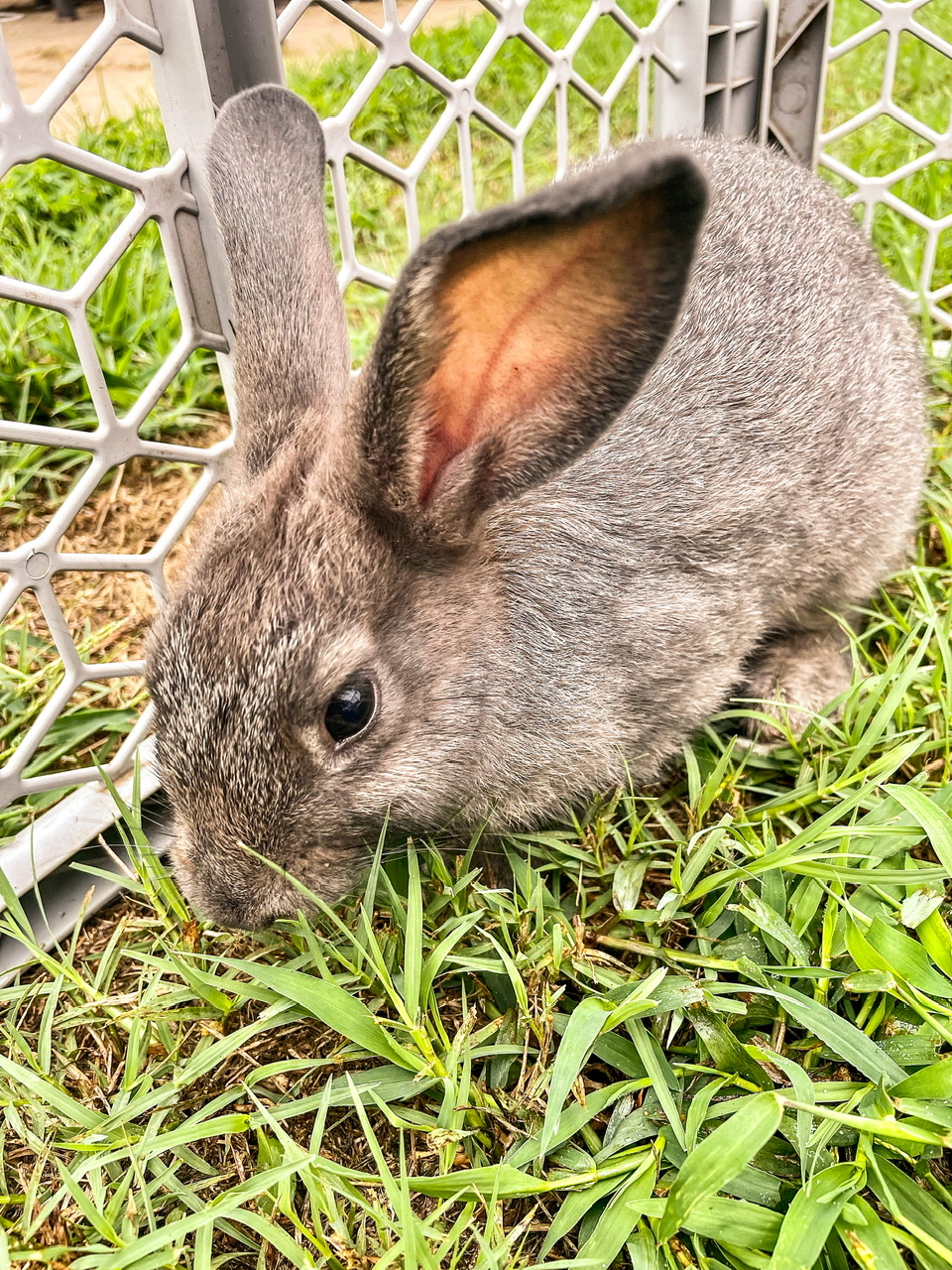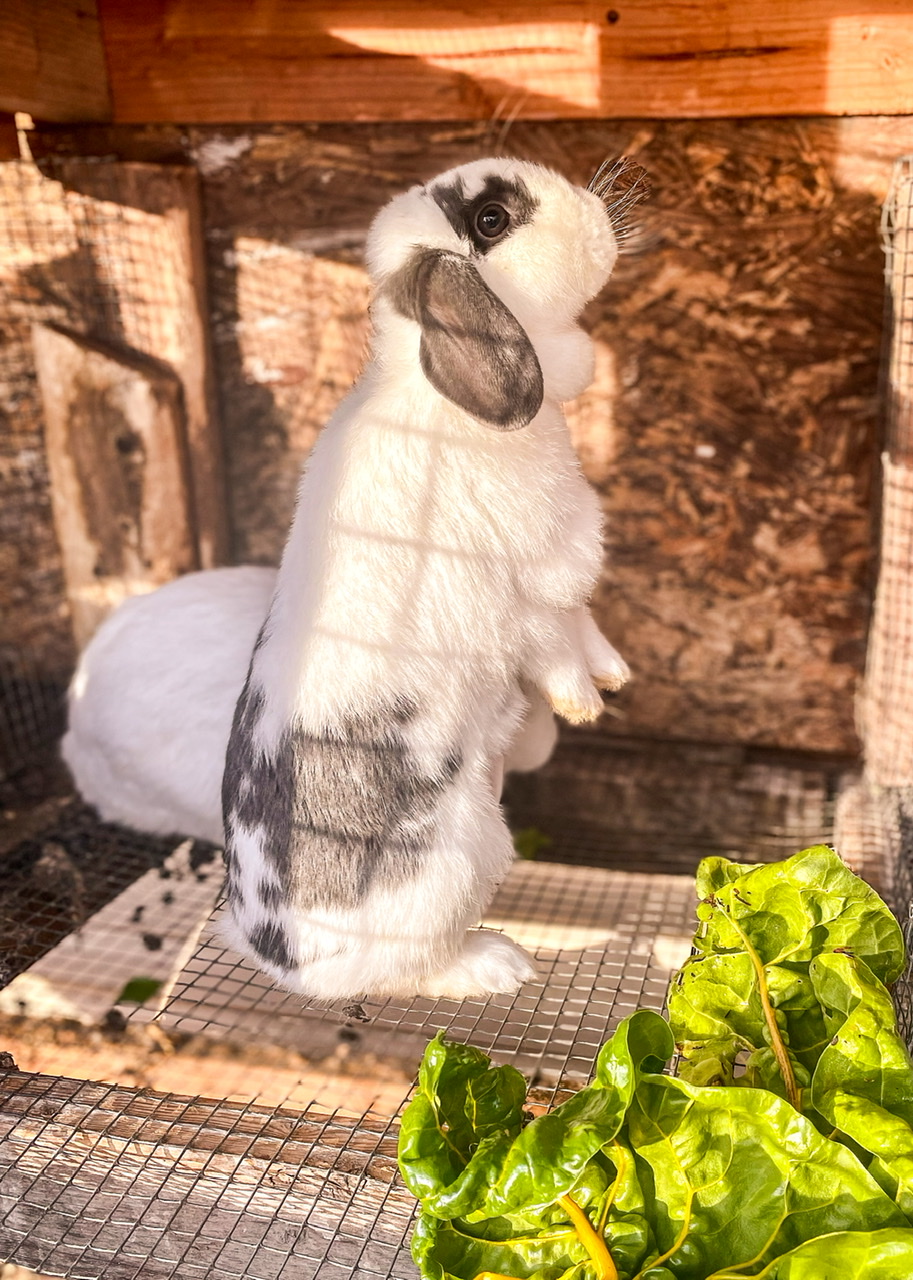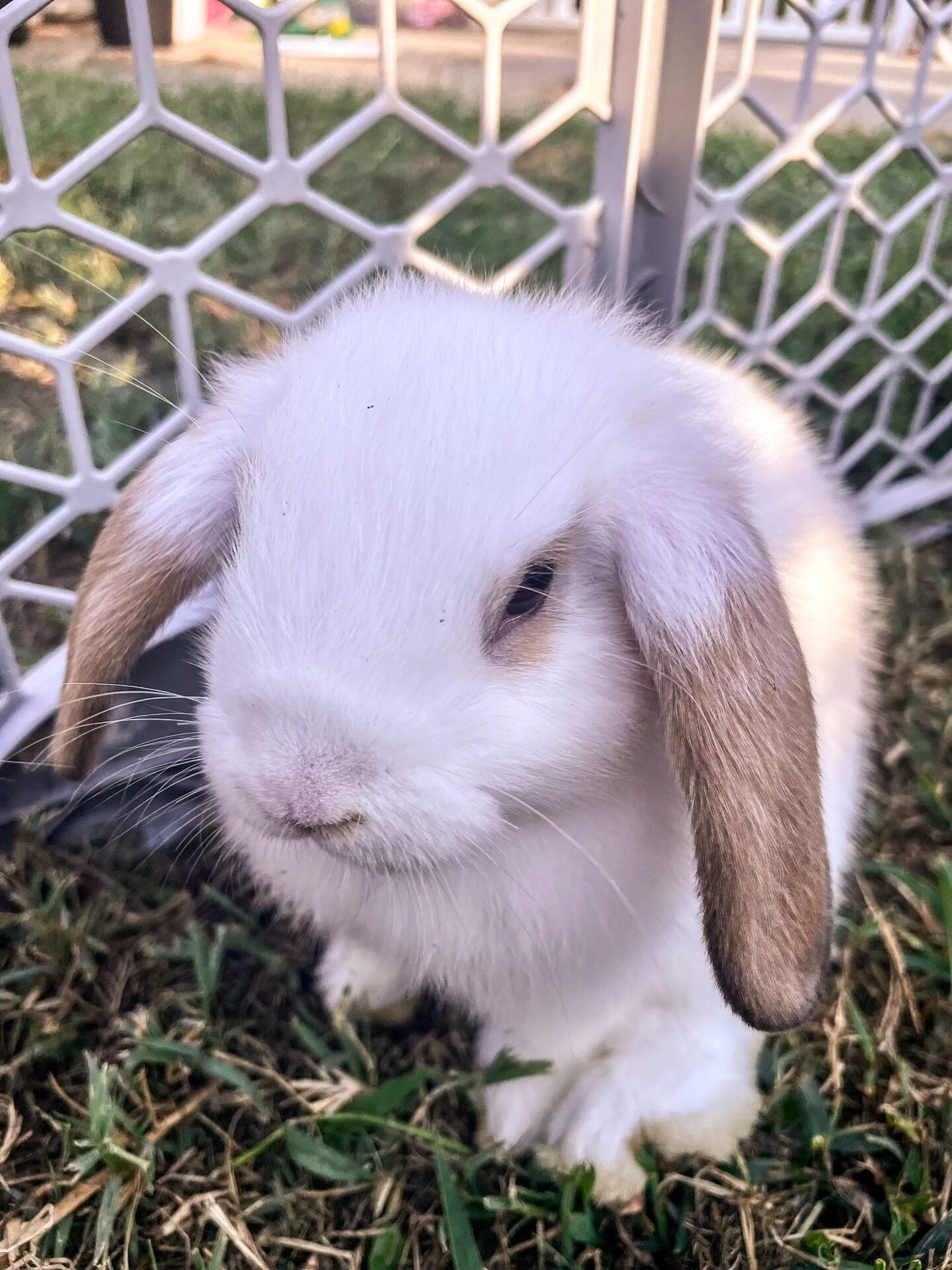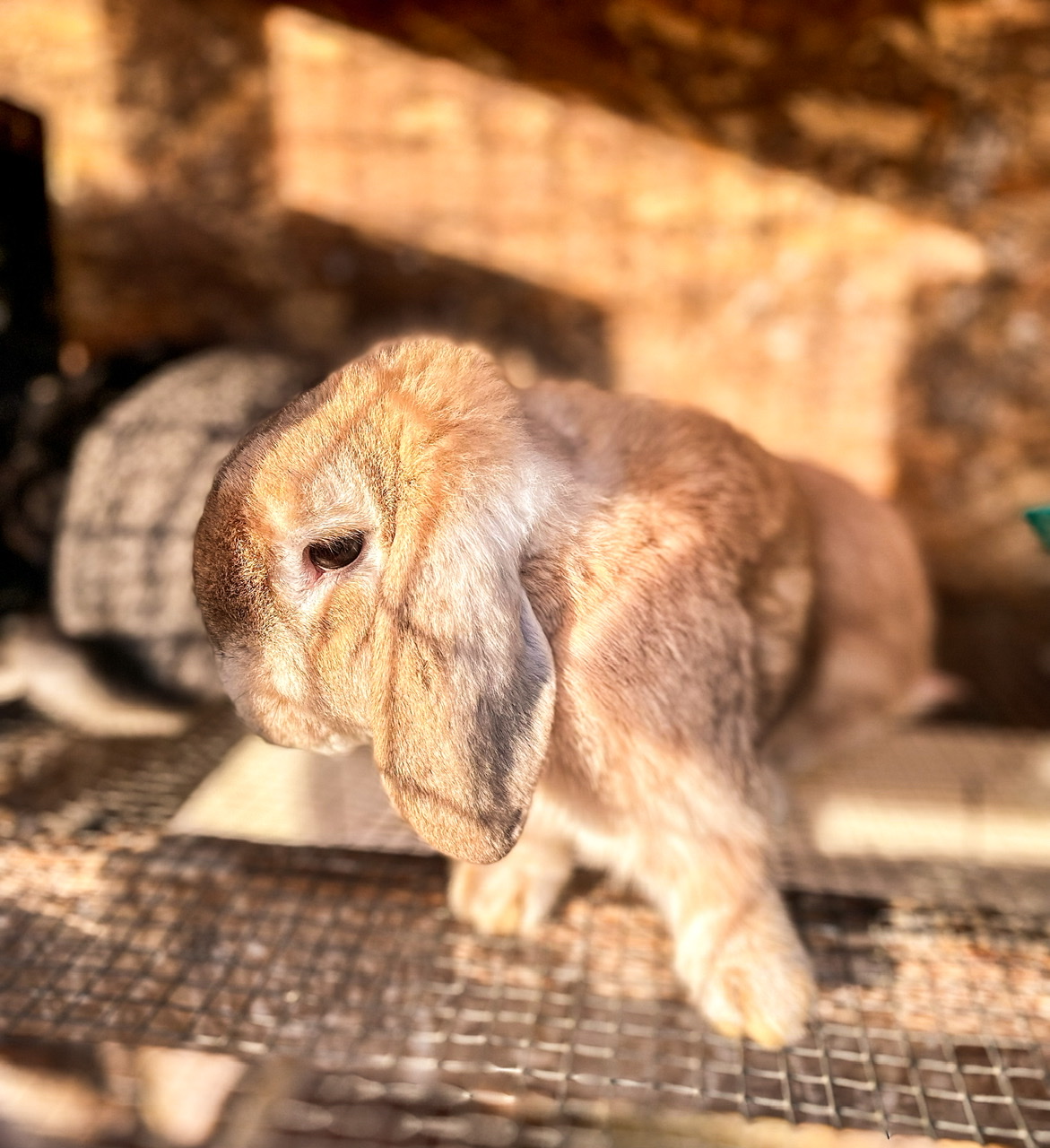If you’re a homesteader, gardener, or farmer, chances are you’ve thought about adding rabbits to your operation. Before you do that, though, it’s important to know what rabbits can and can’t eat so you can keep them happy, healthy, and productive.
Let’s break down the basics of rabbit nutrition.
A Balanced Diet is Key
Rabbits are herbivores which means they eat mostly hay and vegetables. Hay should make up the majority of their diet—around 70-80%. The rest of their diet can be made up of either pellets, fresh fruits, vegetables, and leafy greens. It’s important to note that different species of rabbits may have different nutritional needs; for example, baby rabbits will require milk or milk replacer formula in addition to hay and vegetables.
Hay is an essential part of a rabbit’s diet because it helps keep their digestive system healthy and provide them with lots of fiber. Timothy hay is the best choice for adult rabbits; you can supplement this with alfalfa hay if your rabbit is less than six months old or has special dietary needs. Grass clippings are another great source of fiber for rabbits, but you’ll want to make sure they are pesticide-free.
Your rabbit should also have access to fresh vegetables like carrots, parsley, dandelion greens, and kale. You can also give them small amounts of fruit like apples or bananas as a treat. Just be careful not to overdo it on the treats; too much sugar can lead to health problems in your rabbit.
To get into specifics, fruits like apples (without the seeds), blueberries, pears, and bananas are great for rabbit diets. Acceptable vegetables including carrots, broccoli, cauliflower, kale and spinach are also good sources of essential nutrients for rabbits. Leafy greens such as Swiss chard, romaine lettuce, endive and dandelion greens provide rabbits with lots of fiber, vitamins A and C, iron, calcium and magnesium.
Rabbits should be given small amounts of these foods each day as part of their diet to ensure they get a wide array of nutrients they need. It’s important to remember that some vegetables can be high in sugar or calcium which can cause digestive issues in rabbits so it’s best to limit fresh foods too, at most, 20% of their diets.
What Not To Feed Your Rabbit

Another important subject is to know what not to feed your rabbit. Most human food can be toxic if consumed by a rabbit and some fresh foods can actually be detrimental to their health.
Do NOT give your rabbit any grains (including oats), peanuts, or processed foods like chips or candy as these can upset your rabbit’s digestive system. It is important to remember that rabbits are herbivores so you should avoid feeding them anything with meat or dairy products. Table scraps should also be avoided.
Common household foods that should be avoided include chocolate, caffeine, bread/cereal products (including crackers), fatty snacks (such as chips and nuts), raw beans or potatoes, mushrooms, and any type of processed food. If a rabbit ingests any of these foods, it can cause serious health issues such as GI stasis and even death.
While it may seem like a good idea to give your rabbit the occasional flower or plant, doing so without researching can be dangerous. Many flowers (such as daises) and plants (like rhubarb leaves) are poisonous to rabbits so it’s best to keep them away from any greenery that you think might not be safe for them.
Finally, avoid feeding them avocado as this could cause liver damage. In general, stick with hay, fresh fruits, leafy greens and vegetables for a balanced diet!
Set Up an Appropriate Diet Plan

Once you understand what a balanced diet looks like for your particular species of rabbit, you’ll want to set up an appropriate diet plan for them. It is important to have a steady routine for your rabbit’s meals, as this will help establish healthy eating habits and prevent digestive issues.
A good rule of thumb is to feed them hay in the morning, fresh fruits and vegetables throughout the day, and a small handful of pellets in the evening. The amount of each food will depend on your rabbit’s size and age so you’ll want to research what the ideal portion sizes are for them.
It’s also important to offer your rabbit clean water at all times so they can stay hydrated; you may even consider offering them two separate dishes filled with clean water (one should always be available but give them the other if they seem particularly thirsty). Cleaning out their food and water dishes regularly (at least once per week) will help keep your rabbit healthy.
Finally, it’s important to remember that rabbits are very curious creatures and can get into trouble with the wrong foods; always supervise them if you’re giving them treats or fresh foods so they don’t accidentally ingest something harmful.
With a little research, patience and dedication, you can provide your rabbits with an appropriate diet. Just remember that what is good for one type of rabbit may not necessarily be suitable for another type; understand their needs before making any changes to their diet. With the right plan in place, you’ll have a happy and healthy bunny companion.
List of Toxic Foods

Below is an extensive list of toxic foods for rabbits. Until you have a handle on what they can and can’t have, it may be easiest to post this somewhere convenient where it can be easily referenced.
-Daisy
-Chrysanthemum
-Lily of the Valley
-Avocado
-Potato (raw)
-Raw Beans
-Fruit Seeds/pits
-Onions
-Garlic
-Leeks
-Rhubarb leaves
-Mushrooms
-Foxglove
-Chocolate
-Caffeine
-Bread
-Eggs
-Cereal products
-Pasta
-Crackers
-Chips
-Nuts
-Peanuts
-Grains
-Oats
-Table Scraps
What you can (and can’t) feed your rabbit

Whether you’re a homesteader who wants to add rabbits or just curious about what these creatures eat – knowing what rabbits can (and can’t) consume is essential. Rabbits need a balanced diet consisting mostly of hay but also including fresh fruits & veggies along with leafy greens – all while avoiding grains and processed foods that could damage their digestive system. Setting up designated eating times will help ensure they stay on track with their nutrition plan while giving them structure and routine in their day-to-day life. All in all – rabbits are quite low maintenance when it comes to food! So if you’ve been considering adding one to your home or homestead these easy, low-maintenance creatures are sure to bring lots of purpose and joy.
0


